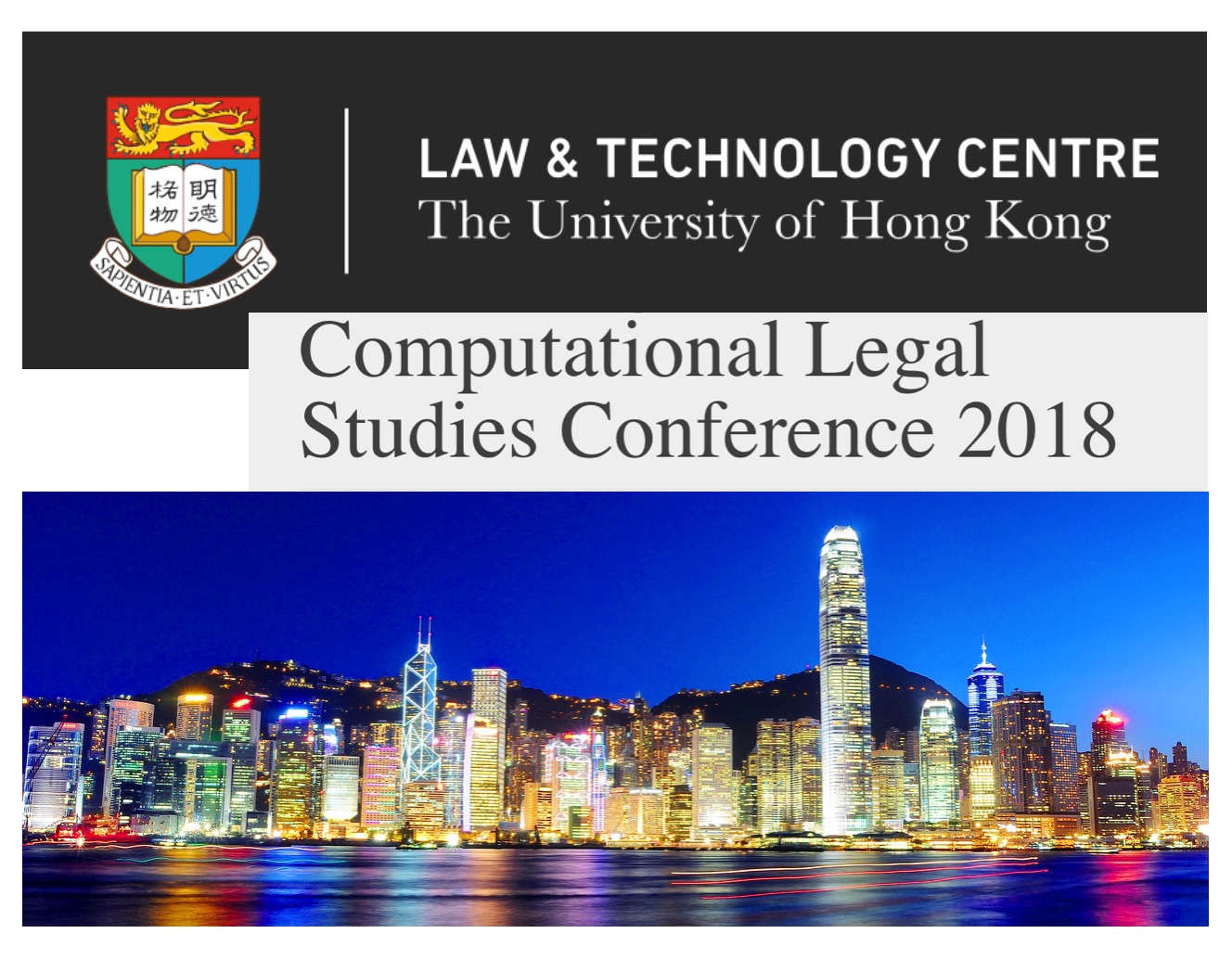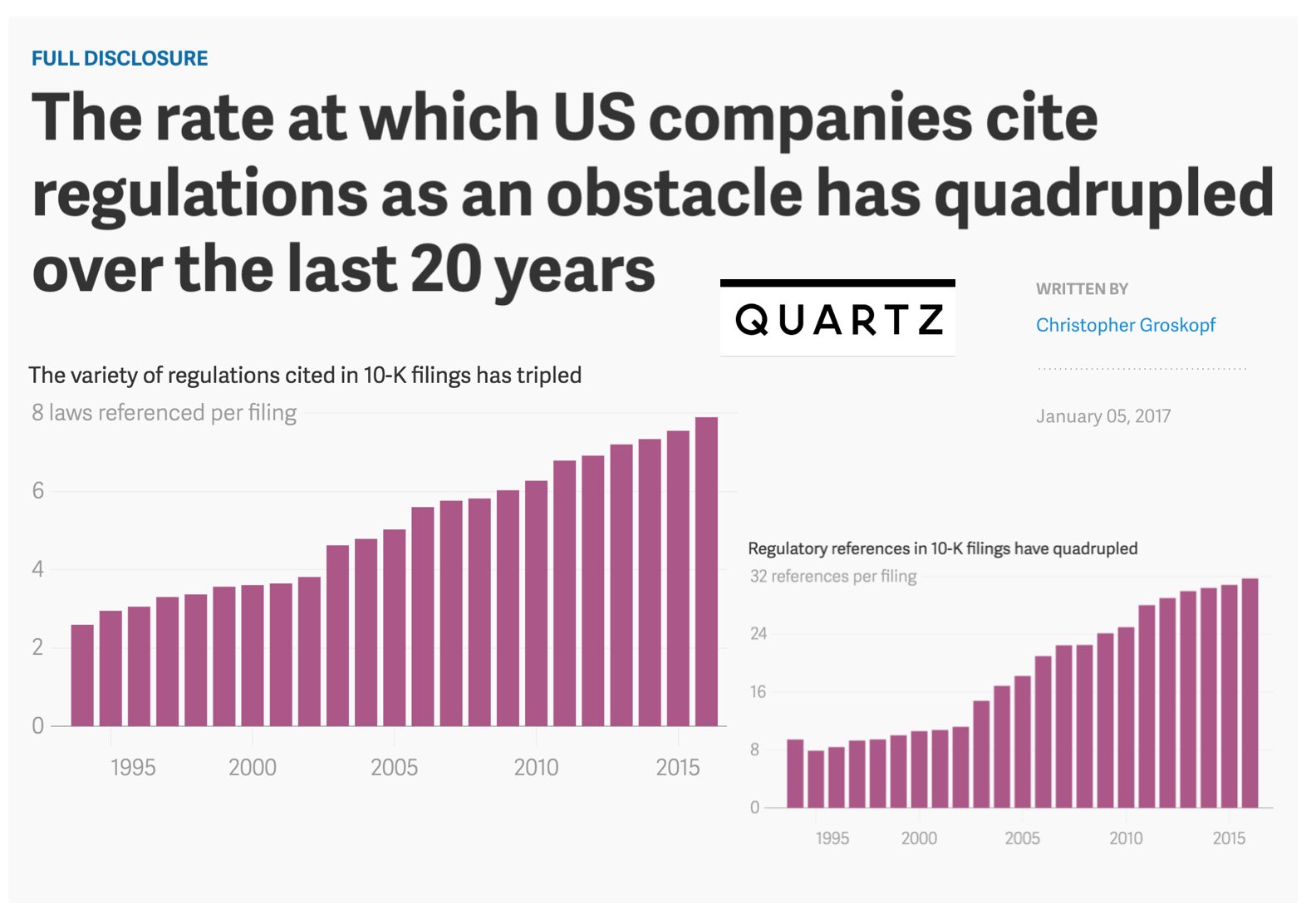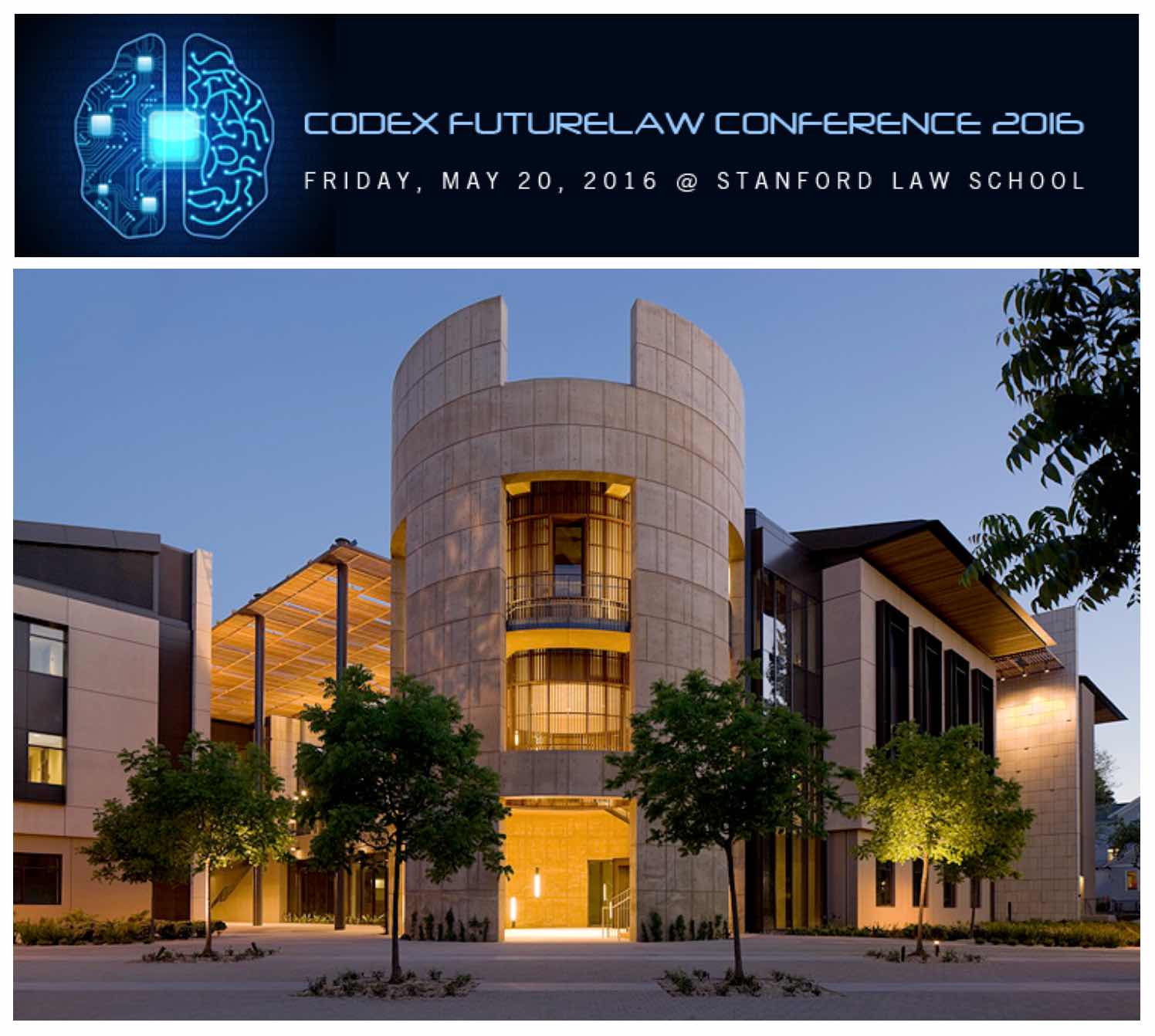
It was a very nice day here at the 2019 Stanford CodeX Future Law Conference – connected with some old friends and new friends — Dirk Hartung Dazza Greenwood Pablo Arredondo Brian W Tang Jerrold Soh and many others !

It was a very nice day here at the 2019 Stanford CodeX Future Law Conference – connected with some old friends and new friends — Dirk Hartung Dazza Greenwood Pablo Arredondo Brian W Tang Jerrold Soh and many others !
 Today is the Computational Legal Studies Conference here at University of Hong Kong – a global gathering which seemed impossible when Mike Bommarito and I started our Comp Law Blog nearly 10 years ago …
Today is the Computational Legal Studies Conference here at University of Hong Kong – a global gathering which seemed impossible when Mike Bommarito and I started our Comp Law Blog nearly 10 years ago …
Call For Papers: “The empirical turn in legal scholarship has intensified with the integration of a new quantitative and computational methods. In our second annual workshop on law and social science methods, we call for papers on two increasingly popular approaches: network science and machine learning. We are especially interested in papers that seek to deepen the understanding of these methods or apply them to doctrinal or interdisciplinary questions in areas such as criminology, international law, corporate Law and sustainable development.
The Keynote Speaker for the workshop is Dan Katz, Illinois Tech – Chicago Kent College of Law, who has been a pioneer in the use of both methods in understanding and predicting the behavior of the US Supreme Court and advancing the field of legal technology”
Abstracts of approximately 200 words should be submitted to Martin Nøkleberg and Hanna Ahlström by 22 August 2018.
Acceptance of papers will be notified by 1 September 2018.
Papers should be submitted by 24 September 2018.
Workshop 10-11 October 2018 at the University of Olso
–
Following up on our prior announcement – here is a slidedeck offering more Product Overview, Use Case and Plan for Release.
Today we here at LexPredict announce that we will be open sourcing our document analytics platform ContraxSuite (which works on a wide class of documents beyond just contracts).
From the Announcement – “Starting on August 1st, this code base and our public development roadmap will be hosted on Github under a permissive open-source licensing model that will allow most organizations to quickly and freely implement and customize their own contract and document analytics. Like Redhat does for Linux, we will provide support, customization, and data services to “cover the last mile” for those organizations who need it.
We believe that a very important future for law lies in its central role in facilitating and regulating the modern information economy. But unless we start treating law itself like the production of information, we’ll never get there. Before we can solve big problems with smart contracts, we need to start by structuring existing legacy contracts. We hope our actions today will help lawyers, companies, and other LegalTech providers accelerate the pace of improvement and innovation through more open collaboration.” (click here for full announcement or access via Slideshare)
It has my great pleasure to serve as a guest instructor in the Stanford Legal Informatics class! Thanks to Roland Vogl + Michael Genesereth for allowing me to connect with the students in this course.
An Updated Version of Artificial Intelligence and Law : A Six Part Primer
 “Michael Bommarito II and Daniel Martin Katz, legal scholars at the Illinois Institute of Technology, have tried to measure the growth of regulation by analyzing more than 160,000 corporate annual reports, or 10-K filings, at the US Securities and Exchange Commission. In a pre-print paper released Dec. 29, the authors find that the average number of regulatory references in any one filing increased from fewer than eight in 1995 to almost 32 in 2016. The average number of different laws cited in each filing more than doubled over the same period.”
“Michael Bommarito II and Daniel Martin Katz, legal scholars at the Illinois Institute of Technology, have tried to measure the growth of regulation by analyzing more than 160,000 corporate annual reports, or 10-K filings, at the US Securities and Exchange Commission. In a pre-print paper released Dec. 29, the authors find that the average number of regulatory references in any one filing increased from fewer than eight in 1995 to almost 32 in 2016. The average number of different laws cited in each filing more than doubled over the same period.”
Above is my keynote address at the Janders Dean Legal Horizon Conference in Sydney. It is a mixture of some earlier talks I have given – together with some new materials.

Tomorrow I will be at the Stanford CodeX Future Law 2016 Conference @Stanford Law School. I will be moderating the following panel:
Hot or Not – Watson and Beyond
What data analytics technologies are in use today?
What’s real and what’s marketing buzz?
What’s possible in the foreseeable future?
What are the implications for providers and consumers of legal services?
What are the limitations?
What are the policy implications?
Moderator:
Professor Dan Katz,
Illinois Tech – Chicago-Kent College of Law, @computational
Speakers:
Noah Waisberg, Kira Systems, @nwaisb
Khalid Al-Kofahi, Thomson Reuters, @KKofahi
Charles Horowitz, The MITRE Corporation Informatics
Andrew Arruda, ROSS Intelligence, @AndrewArruda
Himabindu Lakkaraju, Stanford University, @hima_bindu